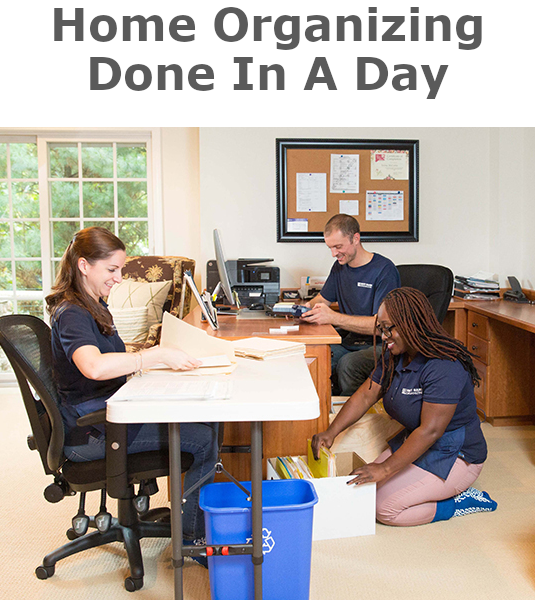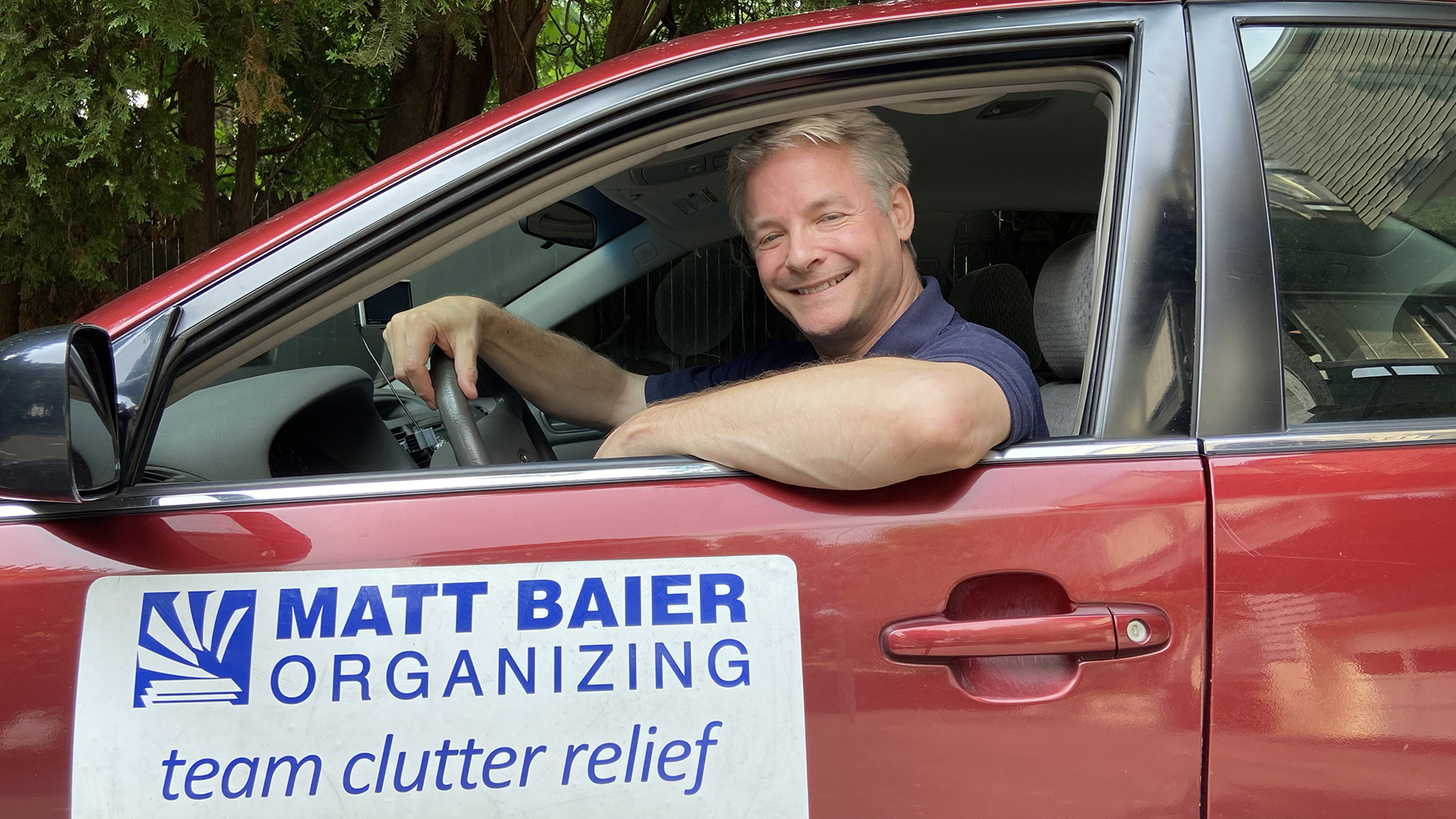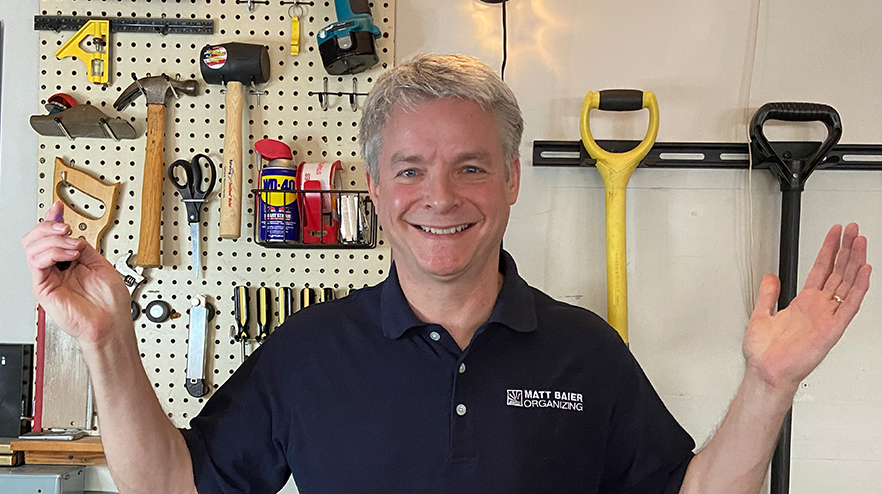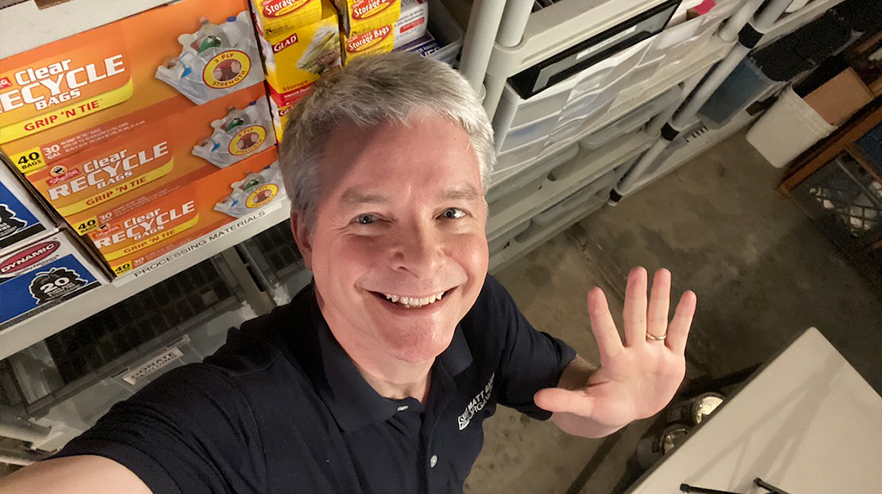Organization may be eluding you because you are wasting time on organizing tasks of lesser value. Here are some examples of such low value tasks that I have observed and what I recommend instead.
Note: If you are doing these things and you are still finding the time to take on larger organizing challenges, then ignore what I’m saying. This advice is for those of you who never find a time to get it all done.
Shredding immediately
Many clients who are overwhelmed with mail, like to tell me that they manage to shred the junk immediately. Actually the immediate shredding may well be part of the problem. It is a low organizing priority. Instead, your priority should be on an immediate sorting of mail. Quickly sort bills to pay, from statements to file, and magazines to read, etc. This should take less than two minutes and will keep your dining table or kitchen counter clear. A clear work surface is your number one organizing tool. The shredding can wait. Also, once you have assigned it to a shredding box, the task doesn’t require your unique knowledge. It can be delegated to another family member, or if there’s a lot, to a shredding service.
Planning to process mail
The shredding can wait? Yes, and the rest of the mail can wait to be processed too. Why? Because you don’t need to immediately process mail, in order to prevent it from accumulating. You just need to sort it. Sorting takes very little time, but it can make next steps significantly easier. These next steps include paying bills, filing statements, and reviewing offers. Odds are that you are very busy with other things in the moment you bring mail through the door. The reality is, you don’t always have the time then to process. However you do always have a minute or two, to sort.
Creating binders for owners manuals
Owners manuals do not merit special organizing efforts like binders. Why? Two reasons. First, you are keeping them just in case, so their use is very rare. Second, What is also rare is being unable to find an owners manual online. So you probably don’t need to keep them at all. If you do find it easier to use the paper manuals, don’t over-organize them. Just keep them all together in a drawer or bin.
Purging paid bills every month
Clients often tell me that they toss all their billing statements every month. They also tend to tell me that they are unable to actually maintain this habit. So don’t. Instead, just make a point of doing it once a year, after taxes have been settled. If you are itemizing your taxes, you might want to store these more remotely. Of course, if you trust that you can find all your digital statements online, you don’t need the paper ones at all.
Saving receipts by month
Saving receipts by month is another practice that clients tend to find unsustainable. I find it more helpful to keep receipts by why you need them. I have identified four good reasons why:
- For taxes (keep cash receipts in separate folder)
- For items you might want to return
- For home insurance, proof of value
- For capital improvements
I scan the cash receipts for taxes just twice a year, to capture the necessary information. That’s it.
Color coding every category
It easy to go overboard on the color coding and it can be counterproductive. Color is helpful, but keep it simple
Planning a Tag sale
OK, so I have heard of such a thing as a successful tag sale. However, these stories are rare. In each case, the seller has had a lot of good stuff to start with. Also, some folks enjoy an opportunity to socialize with the neighbors. If neither is true for you, then you probably won’t benefit from a tag sale. It is time-consuming and often exasperating. Sure you may have some things that are worth selling online, but it is a better use of time to donate the rest. The time and space savings far outweigh the frustrating dollars that you squeeze out of a tag sale.
Writing (and re-writing) to do lists
Do you feel more organized when you get the thoughts out of your head and onto a to-do list? Most of us do, but here’s the problem. We tend to cross off the easier items, to give us a greater sense of accomplishment. Meanwhile the tough to-do’s keep getting rewritten into the next to-do lists. I don’t have a quick alternative to offer here, but I can offer a post I wrote about one.
The most effective Organizing is built on effective prioritizing. Not all organizing efforts are equal. In order to have time for the most rewarding efforts, it is important to recognize the less rewarding ones. Saying “no” to tasks of lesser value, allows you to say “yes” to the best.
Please Share With Your Community
















